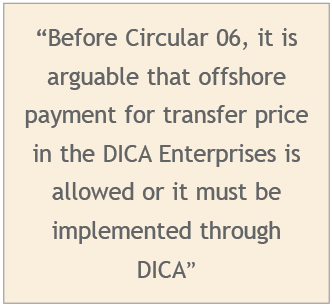Lưu ý: “bài viết này chỉ phát hành tiếng Anh cho tạp chí nước ngoài Asian- Mena Counsel”
By Huynh Hoang Sang.
The Government recently promulgated Decree No.69/2019/ND-CP on the utilisation of public property for making payment to investors upon execution of construction projects in the form of build-transfer contracts (BT Contract) (Decree 69/2019). Decree 69/2019 replaced Decision No. 23/2015/QD-TTg (Decision 23) and takes effect from October 1, 2019.
In the past, Decision 23 allowed the State to make payment only by land funds to investors executing construction investment projects in the form of build-transfer (BT Project). Otherwise, Decree 69/2019 provides that the State could expend the public property including (i) land funds; (ii) land, houses and other assets on land; (iii) infrastructure assets used for the national interest, public interest; and (iv) other types of public properties (according to the Law on management and use of public property). The expansion of the extent of public properties under Decree 69/2019 is reasonable and in line with the Law on management and use of public property 2017 and further adaptable to the need of BT Projects. Besides that, proceeds from public properties auctions could also be used to pay investors for execution of BT Projects in accordance with the Law on Public Investment and Law on State Budget. The expansion of subject of properties used for payment to investors undertaking BT Projects will provide more tools for payment in such projects and encourage the development of BT Projects in the future.
The use of public property for payments to investors undertaking BT Projects is implemented under the principle of parity — the value of the BT Project is equivalent to the value of public properties expenditure. Accordingly, the value of public property shall be determined based on market price as per the regulations at the time of payment and the value of the BT Project shall be determined based on the result of the auction. In case the value of the paid land funds is larger than the value of the BT Project, investors shall pay the difference to the State budget. Otherwise, if the value of the paid land funds is smaller than the value of the BT Project, the State shall choose to pay the difference in cash or through land funds at the time of finalisation of the BT Project.
Decree 69/2019 provides the valuation method and payment schedule for each type of public properties. However, payment made from the public properties as mentioned above always requires an approval from the Prime Minister.
One noteworthy point in Decree 69/2019 is that the payment through land funds for investors shall be enforced in two methods as follows: (i) allocating land with collection of land use fees or (ii) leasing land with collection of a one-off lump sum payment of rent for the entire lease term. The land fund paid for investors includes non-clearance lands or land with completion of clearance. Noting that the use of land with completion of clearance for making payment to investors must be reported by Provincial People Committee (PC) to the Prime Minister for considering and deciding before the issuance of the decision on in-principal approval of the BT Project.
In contrast, in terms of non-clearance lands, based on (i) approved plan 1/500 or 1/2000 and (ii) request from competent authorities who signed the BT Contract, the Provincial PC shall commit with investors in writing on the use of land funds for the payment to the BT Project. In such case, investors should pay attention to the advance payment for compensation, clearance expenses under the approved plan on compensation and clearance, and such advance payment amount shall be put in the price of the BT Contract. One critical thing to note is that the advance payment amount shall not be accounted for loan interest charges in capital mobilisation of the BT Project. After receiving the deposit, the State shall implement compensation and clearance works as per the approved plan. In this situation, investors should expect that the compensation and clearance works may take a long time and, in the worst case, may be long-term delayed, hence the capital cost of the BT Project may be materially affected due to the non-interest in loan of capital mobilisation of the BT Project from the advance payment amount.
The time of payment for the BT Project shall be calculated from the date the authorities issue a decision on land allocation, land lease or property transfer to the investor. The handing-over of public properties for payment to the investor shall be enforced after the BT Project is completed or under the schedule determined by the authorities in accordance with the Law on investment and construction.
Under this new and favourable regulation, we think that BT Projects in Vietnam will not only be developed steadily but also attract more investor interest from across the region.



